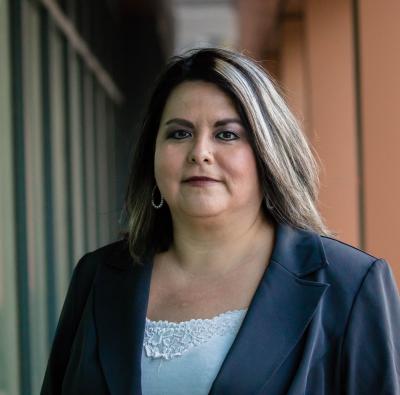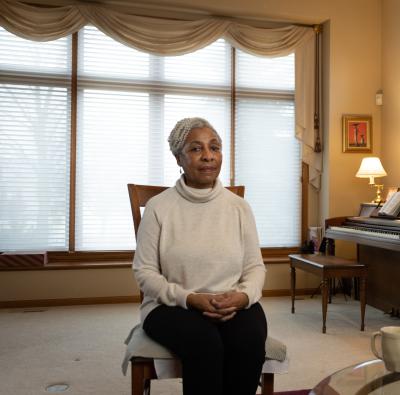Update:
On June 27, the Supreme Court issued a ruling in this case drastically expanding presidential power. The Supreme Court has kicked the can down the road in deciding whether the President's attempt to end birthright citizenship is constitutional, but in doing so threw up new road blocks to immediately halting unconstitutional executive actions...
Transparency about who is spending money to influence our government is critical to the functioning of our democracy. But legislators in North Carolina are now seeking to undo critical transparency requirements in an effort to shroud political spending — particularly the funding of electoral litigation expenses — in secrecy.
Lawmakers should reject...
In the summer of 2025, President Donald Trump’s so-called “One Big Beautiful Bill Act” became law. It originated in the U.S. House of Representatives, was modified and passed by the U.S. Senate, and signed by the president on July 4.
This massive legislation — totaling near 1,000 pages — used a complicated congressional procedure known as “budget...
Black and Latino voters in Galveston County, Texas — the birthplace of Juneteenth — have long been denied a voice in county government, an unjust reality that perpetuates centuries of discrimination.
June 19, also known as Juneteenth, commemorates the ending of slavery in the United States. Designated a federal holiday in 2021, Juneteenth serves as...
After launching a full-scale attack on our system of checks and balances and threatening the ability of our government agencies to function in service to the American people, unelected billionaire Elon Musk is leaving public office.
Accountability for our public officials does not end when they leave government — the public deserves to know if...
Campaign Legal Center welcomes eight new members to our team for the summer: our 2025 class of summer legal interns. The summer interns are current law students who will work with CLC's full time staff to help advance our work in the areas of voting rights, redistricting, campaign finance and government ethics.
Welcome, team!
Meet the Interns
Macallan...
The exorbitant price of inaugurations — and the fact that inaugural committees can accept unlimited donations, as well as corporate money — make them an ideal means for wealthy special interests to buy political access and influence, ultimately drowning out the voices of everyday Americans.
For example, according to new disclosures, the...
In a win for government transparency and ethics enforcement, the U.S. House of Representatives just approved four nominees to the governing board of the Office of Congressional Conduct (OCC).
The announcement comes on the heels of a letter Campaign Legal Center (CLC) and 19 partners sent to House leadership calling on them to approve the OCC board....
Any attempt to limit the freedom to vote is an attempt to silence American voices. All across the country, states have been passing bills that would require voters to provide unnecessary and difficult-to-obtain documentation in order to register to vote.
Campaign Legal Center (CLC) has been at the forefront of challenging these laws because our...
In America, a core principle of our democracy is one person, one vote. That principle — which is rooted in law and which courts have upheld time and again — aims to ensure every American’s voice is heard and every vote counts equally.
However, the way some states draw their electoral districts can violate this principle and lead to unfair...
In a victory for North Carolina voters, thousands of voters will be able to make their voices heard and not have their ballots wrongly discarded for the 2024 North Carolina Supreme Court race between incumbent Justice Allison Riggs and Judge Jefferson Griffin. As a result, Riggs will retain her seat on the state high court.
The courts affirmed...
Transparency is tremendously important for our democracy to function effectively. Voters should know who is spending money to influence their vote — which is why we have laws barring wealthy special interests from using secret campaign funds to buy favor with elected officials.
Federal campaign finance laws protect voters from a corrupt, pay-to...
Given federal inaction on voting rights, states need to step up to protect the freedom to vote for every American. Hopefully, many of them will prioritize laws and policies that protect the freedom to vote.
This issue is particularly important given that the past few years have seen the proliferation of anti-voter laws that disproportionately...
The first 100 days of a presidential term says a lot about a president’s policy goals, and it also provides Americans insight into how a president intends to govern over the next four years.
For President Donald Trump, the first 100 days has been characterized by a period of blatant disrespect of the rule of law, our system of checks and balances...
Free and fair elections and the rule of law are cornerstones of our constitutional system of self-government that must be defended. At the federal level, this means having a strong, independent U.S. Department of Justice (DOJ) committed to honoring the Constitution through impartial law enforcement.
As the DOJ states on its website, “The mission of...
The freedom to vote is at the core of a strong democracy. But recently, politicians — from state houses to the White House — have tried to limit that freedom, and consequently, weaken our democracy.
State-level documentation laws, the SAVE Act and President Trump's executive order on voting would all have the same effect: making it harder for...
Voting is an essential American freedom; however, an executive order by President Donald Trump is illegally and unconstitutionally threatening that freedom for millions of Americans.
President Trump signed an executive order on March 25, 2025, directing several federal agencies to change the rules for federal elections. This is a clear violation of...
Recently, many former lobbyists have been appointed to important government positions, including leadership in the very agencies they formerly lobbied.
This revolving door of lobbyists in government creates new pathways for wealthy special interests to exert undue influence over our government.
When lobbyists hold some of the most powerful positions...
Corruption is corrosive to our democracy. When leaders abuse their power to benefit themselves and their political allies instead of the people they are elected to serve, people lose faith in the democratic process.
This is why strong, well-enforced legal guardrails are needed to prevent corruption.
Unfortunately, the Trump administration has moved...
Members of Congress are elected to serve their constituents’ interests. Yet leadership in the U.S. House of Representatives is attempting to effectively shut down the only independent office that can investigate misconduct by members of Congress: the Office of Congressional Conduct (formerly the Office of Congressional Ethics).
The Office of...
Transparency and accountability are fundamental values that promote democracy. Voters have a right to know who is spending money in our elections and influencing politicians, and this information is critical to hold government officials accountable and make informed choices about who should represent them in government.
The Federal Election...

